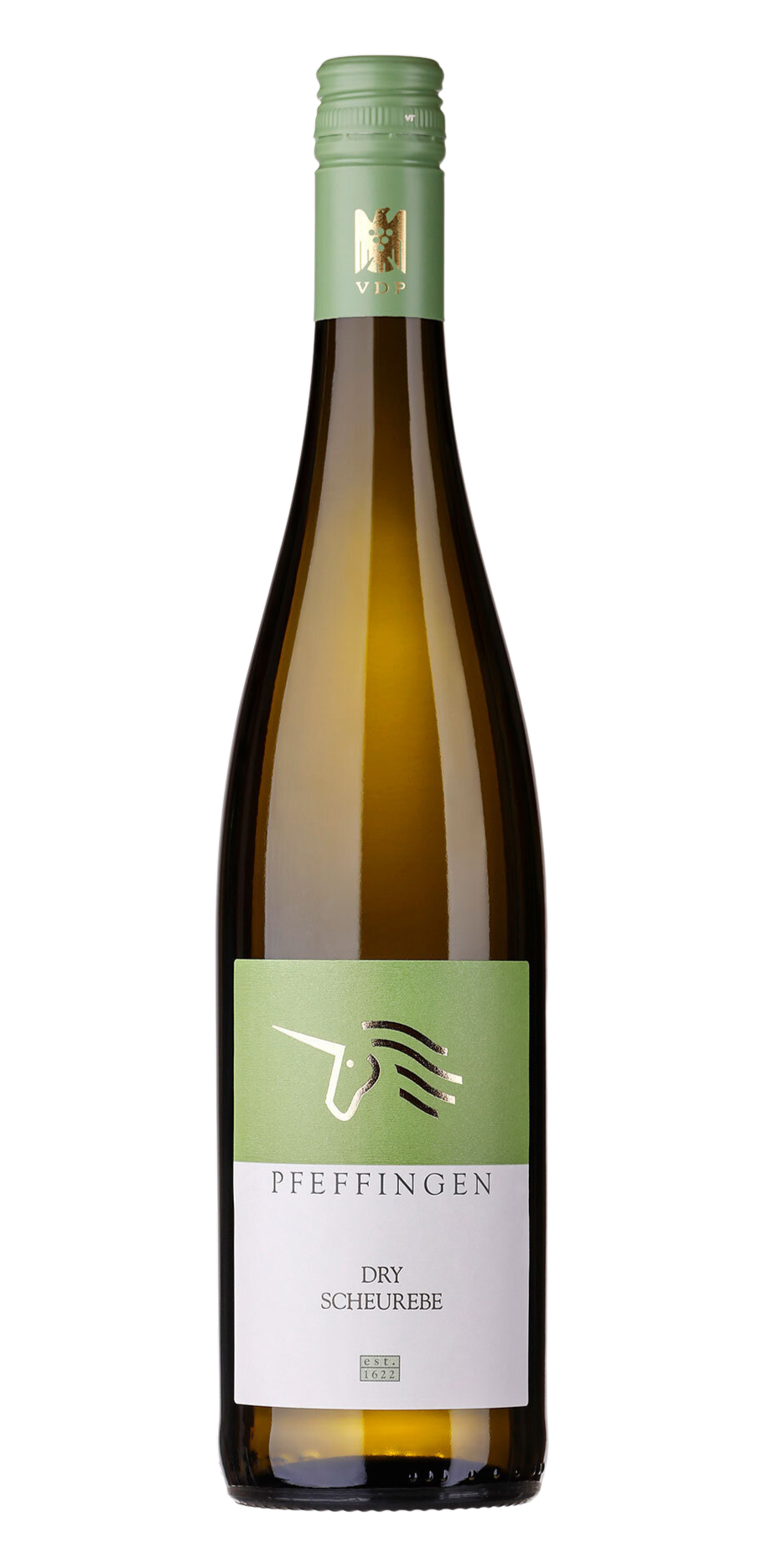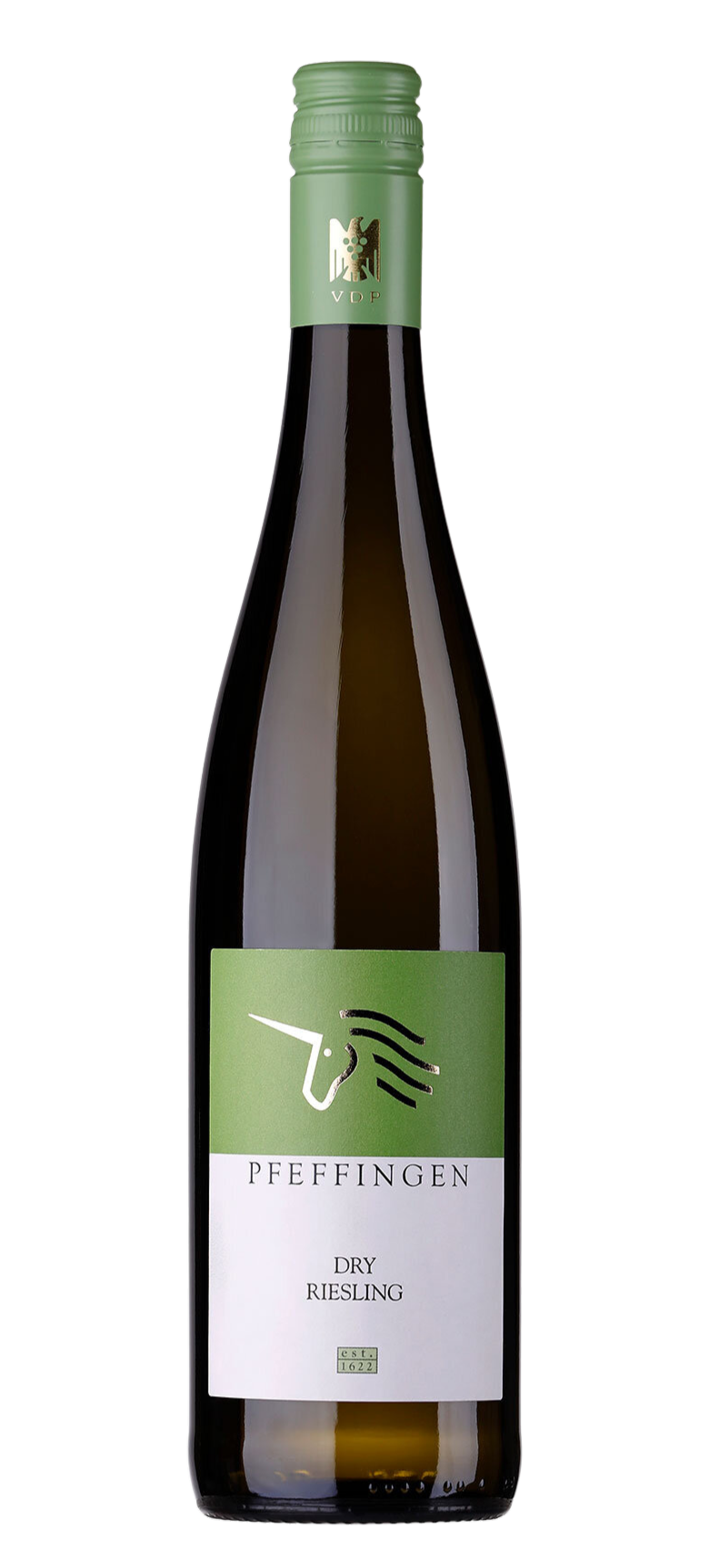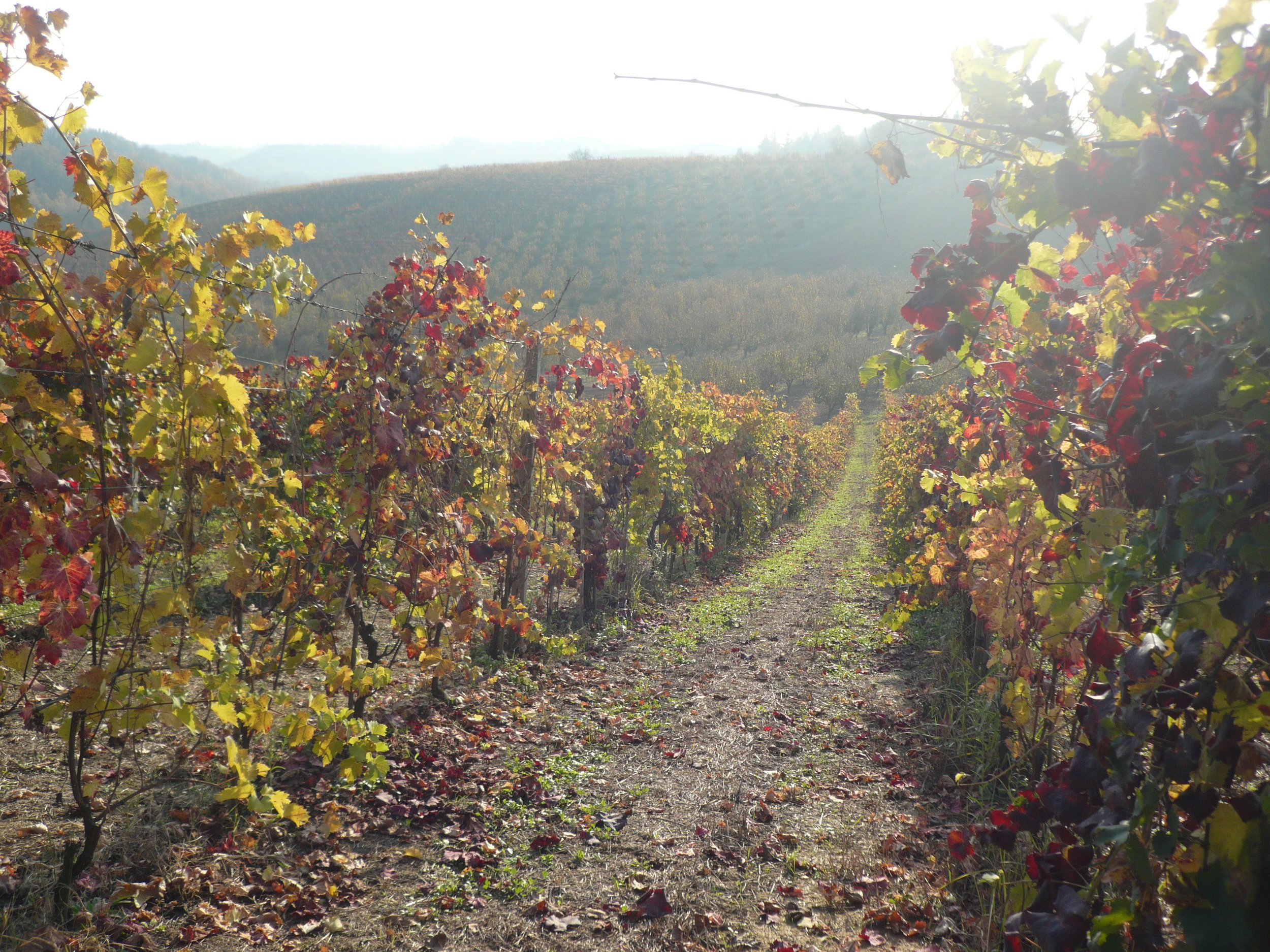
Pfeffingen
Bad Dürkheim, Pfalz, Germany

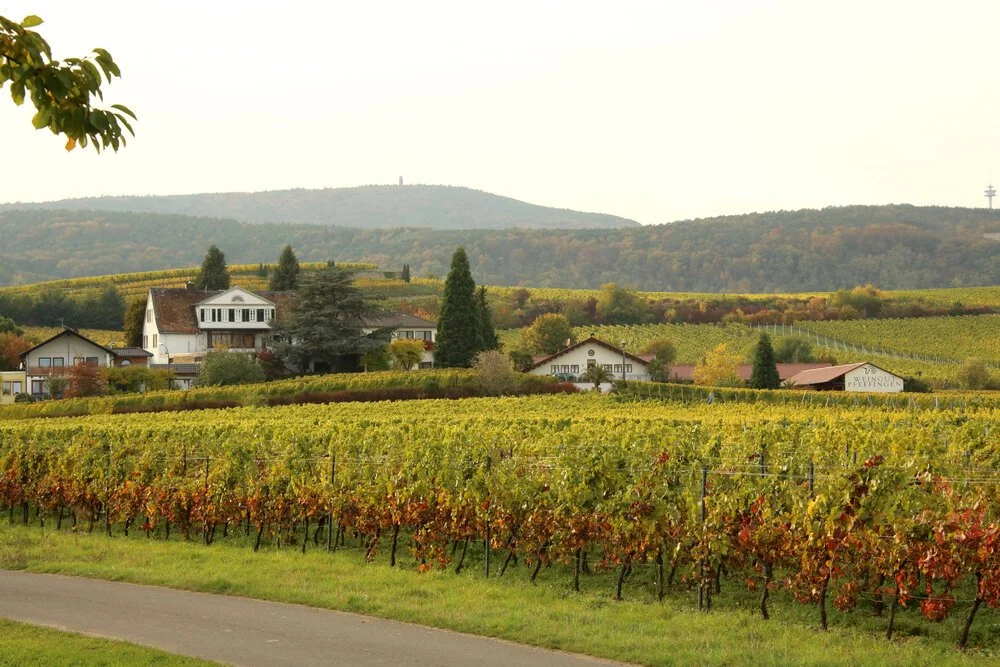
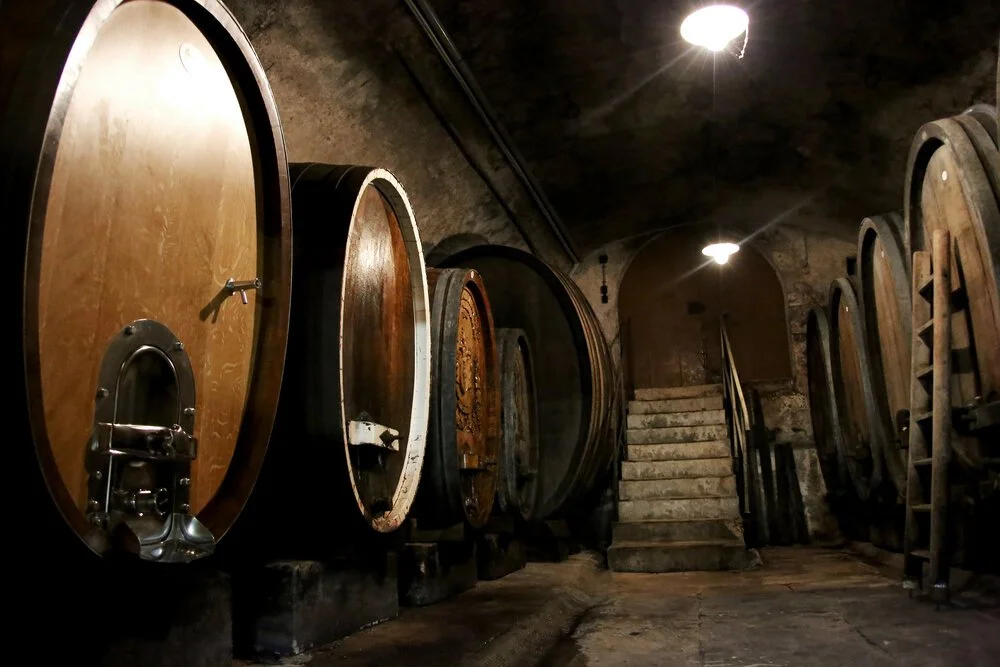
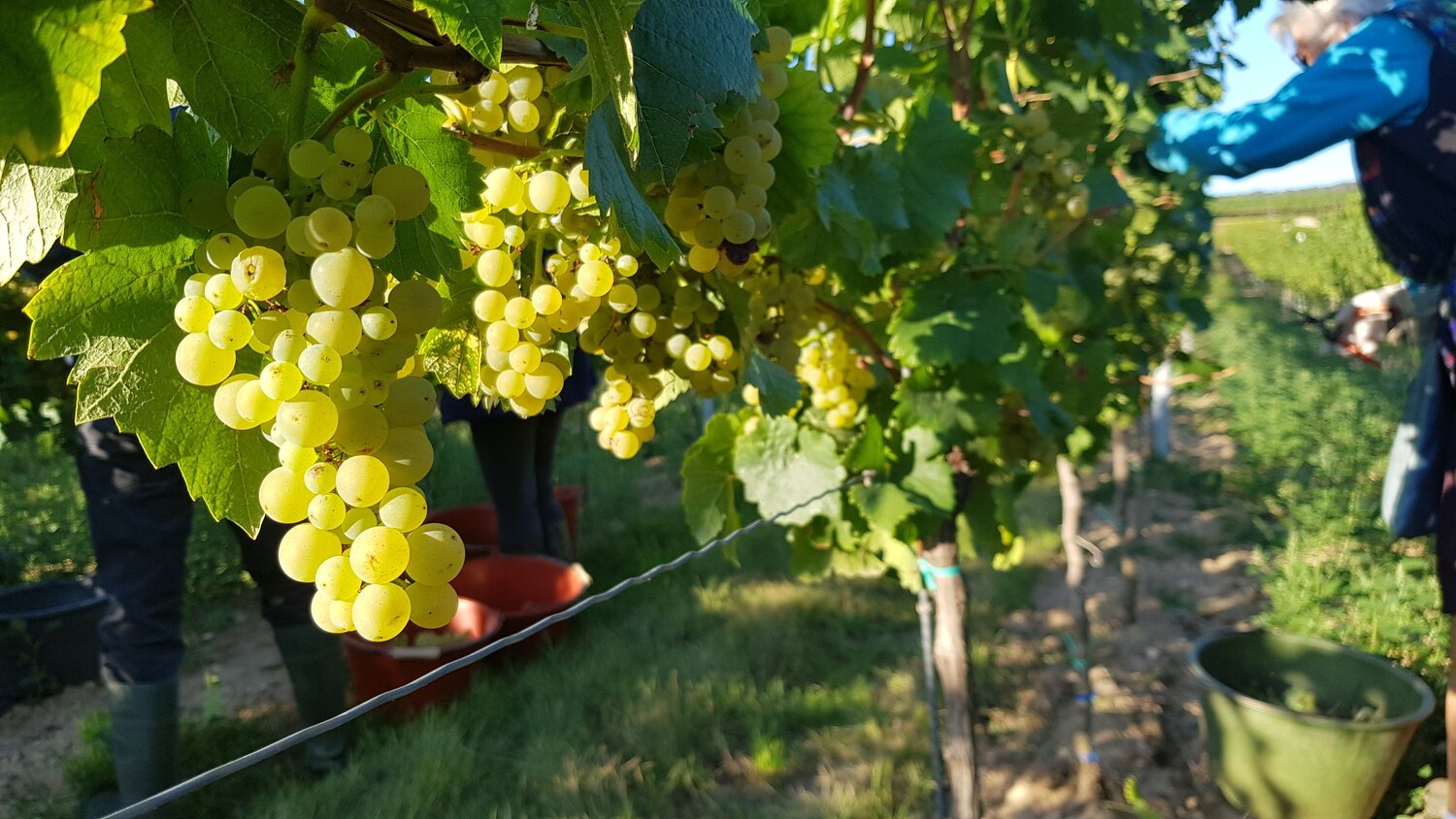
Weingut Pfeffingen, idyllically located amidst its vineyards, is operated by oenologists Jan Eymael, his wife Karin and his mother Doris. All three of them are passionate grape-growers, whose unconditional endeavors to achieve top quality, even on a small scale, make this traditional Pfälzer family operation truly special. They strive to cultivate their 15 hectares (37 acres) of vines to yield unique wines that are rich in minerals and fruit. Weingut Pfeffingen has numbered among the best wine estates of Germany for years. Sense of family is given pride of place at Weingut Pfeffingen. Four generations of the Eymael and Fuhrmann families live and work together at the attractive estate situated on the Deutsche Weinstrasse (German Wine Road).
The Eymael and Fuhrmann families tend their vines and grapes with great care. Various vineyard procedures require manual labor. In all, vineyard maintenance is as ecologically friendly as possible and low yields are a matter of course. The grapes are harvested by hand, by experienced pickers. The vineyards and growing conditions at Pfeffingen are optimal for Riesling but the chalky soils also provide excellent conditions for Weissburgunder (Pinot Blanc) and Spätburgunder (Pinot Noir). The specialty of the house is the aromatic varietal Scheurebe (shoy´ray beh), named for Dr. Georg Scheu, who crossed Riesling and an unknown wild grape (maybe Bukattrebe) in 1916 at the Alzey research center in Rheinhessen. Along with Muller-Cattoir, Pfeffingen is one of the top producers of this magical and unique variety.
Pfeffingen wines are rich in minerals, full of character, and have a fine fruitiness. Their outstanding quality is due not least to their first class vineyard sites – Ungsteiner Herrenberg and Ungsteiner Weilberg. The Herrenberg site has chalky soil while the Weilberg site consists of terra rossa (red loam) – quite unique in German wine country.
The coat of arms to this day, with its mythical unicorn, was conferred in 1622 by Emperor Ferdinand II.
Our Selections
Pfeffingen Scheurebe Estate Dry 2023
The Scheurebe grape is a crossing of Riesling and perhaps a variety called Bukettrebe and was developed in Rheinhessen in 1916 by Dr. Georg Scheu. Its special advantages lie in the field of lighter dry styled wines as well as dessert wines. Its attractive and intense aroma and good acidity makes it a very popular wine in Germany. The Pfeffingen estate has made great Scheurebe wines for over 50 years, the dry style was introduced in 1978. Within this time it gained a national and international reputation for its Scheurebe wines.
Winemaker Jan Eymael prefers to pick the grapes just before the maximum of ripeness. Therefore the wine stays fresh with a delicate lime blackcurrant and the signature pink grapefruit aroma typical of Scheurebe. A full and round body turns into a smooth and elegant finish. The wine is certified sustainable.
11.5% Alc - 4.2 g/l RS - 4.6 g/l Total Acidity
Pfeffingen Riesling Estate Dry 2022
This charming, fruit-forward Riesling is grown in the finest vineyards of Weingut Pfeffingen's picturesque estate in the Mittelhaardt section of the Pfalz region.
Selected, high quality grapes form the foundation for our simple yet refreshing Riesling. Eco-friendly viticulture, restricted yields, selective hand harvest, and temperature controlled fermentation are all employed to ensure that Weingut Pfeffingen wines show in top quality. Notes of apricot, peach and a touch of yellow apple unfold on the nose, while juicy flavors and a racy minerality lend the wine a lovely and unexpected elegance. The wine is certified sustainable.
12.5% Alc - 4.5 g/l RS - 6.6 g/l Total Acidity
Pfeffingen Roter Riesling “Terra Rosetta” 2022
Jan’s grandfather, Karl Fuhrmann, discovered this red-skinned Riesling mutation four decades ago in their family vineyards. This specific vine was pruned on two arches, one of which bore red grapes and the other white. It was at that point that Fuhrmann decided to cut the red arch and use it as a scion to graft onto vines in the garden.
Over forty years later, Jan saw potential in this Roter Riesling, not just as an ornamental variety, but for actual wine production. In 2011, he applied for an experimental planting, and over the next three years, propagated 800 vines in Ungsteiner Herrenburg, with official approval for the grape handed down by the Federal Office for Plant Varieties in 2018.
The combination of citrus, red berries, and herbs we find in the glass is usually reserved for summer cocktails. Lots of lift, life, and energy. At 13% abv, 6.1 g/L TA, and 0.1 g/L RS, this wine is about balance and freshness, with more roundness on the palate than expected – indeed 2022 was one of the hottest years on record in Pfalz, and the first year irrigation was implemented at Pfeffingen due to the threat of drought. So is this what we imagine a red Riesling to taste like? We’re not sure, but Jan Eymael is out here to set the benchmark. 2000 bottles produced.

